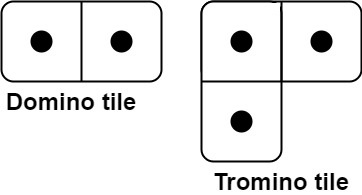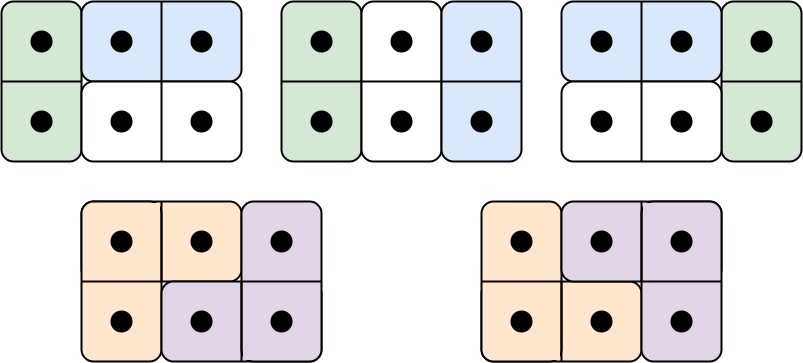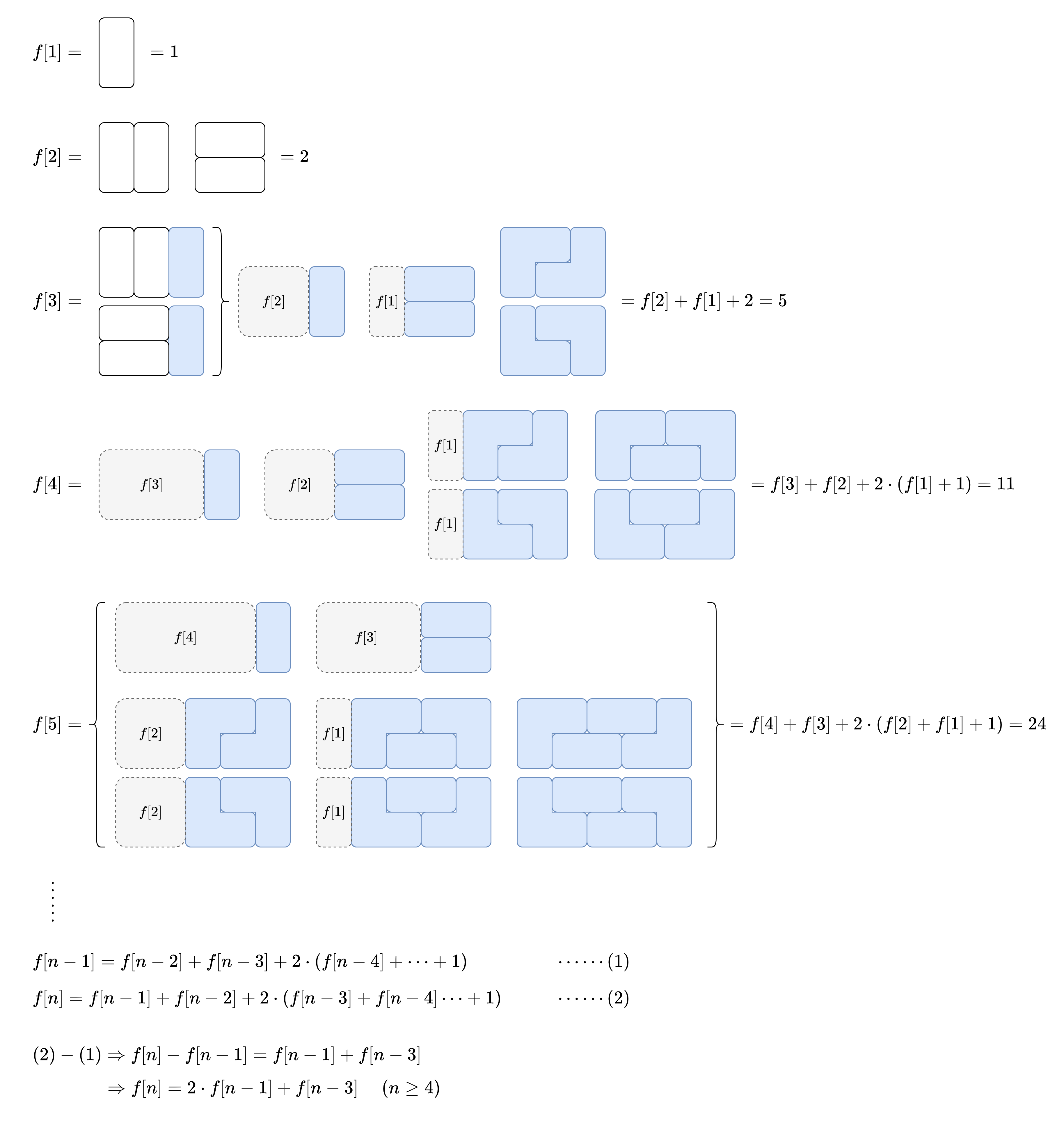[LeetCode] 790. Domino and Tromino Tiling
You have two types of tiles: a 2 x 1 domino shape and a tromino shape. You may rotate these shapes.

Given an integer n, return the number of ways to tile an 2 x n board. Since the answer may be very large, return it modulo 109 + 7.
In a tiling, every square must be covered by a tile. Two tilings are different if and only if there are two 4-directionally adjacent cells on the board such that exactly one of the tilings has both squares occupied by a tile.
Example 1:

Input: n = 3 Output: 5 Explanation: The five different ways are show above.
Example 2:
Input: n = 1 Output: 1
Constraints:
1 <= n <= 1000
多米诺和托米诺平铺。
有两种形状的瓷砖:一种是 2 x 1 的多米诺形,另一种是形如 "L" 的托米诺形。两种形状都可以旋转。
给定整数 n ,返回可以平铺 2 x n 的面板的方法的数量。返回对 109 + 7 取模 的值。
平铺指的是每个正方形都必须有瓷砖覆盖。两个平铺不同,当且仅当面板上有四个方向上的相邻单元中的两个,使得恰好有一个平铺有一个瓷砖占据两个正方形。
来源:力扣(LeetCode)
链接:https://leetcode.cn/problems/domino-and-tromino-tiling
著作权归领扣网络所有。商业转载请联系官方授权,非商业转载请注明出处。
思路是动态规划。我参考了这个帖子,写的很好,图示可以清楚说明推导的过程。经过推导,我们发现,除了 f(1) 和 f(2) 之外,后面的 f(n) 都是可以通过前面更小的函数结果组合而成的。

时间O(n)
空间O(n) - dp数组
Java实现
1 class Solution { 2 private int MOD = (int) Math.pow(10, 9) + 7; 3 4 public int numTilings(int n) { 5 if (n == 1) { 6 return 1; 7 } 8 long[] f = new long[n + 1]; 9 f[0] = 1; 10 f[1] = 1; 11 f[2] = 2; 12 for (int i = 3; i <= n; i++) { 13 f[i] = (f[i - 1] * 2 + f[i - 3]) % MOD; 14 } 15 return (int) f[n]; 16 } 17 }




